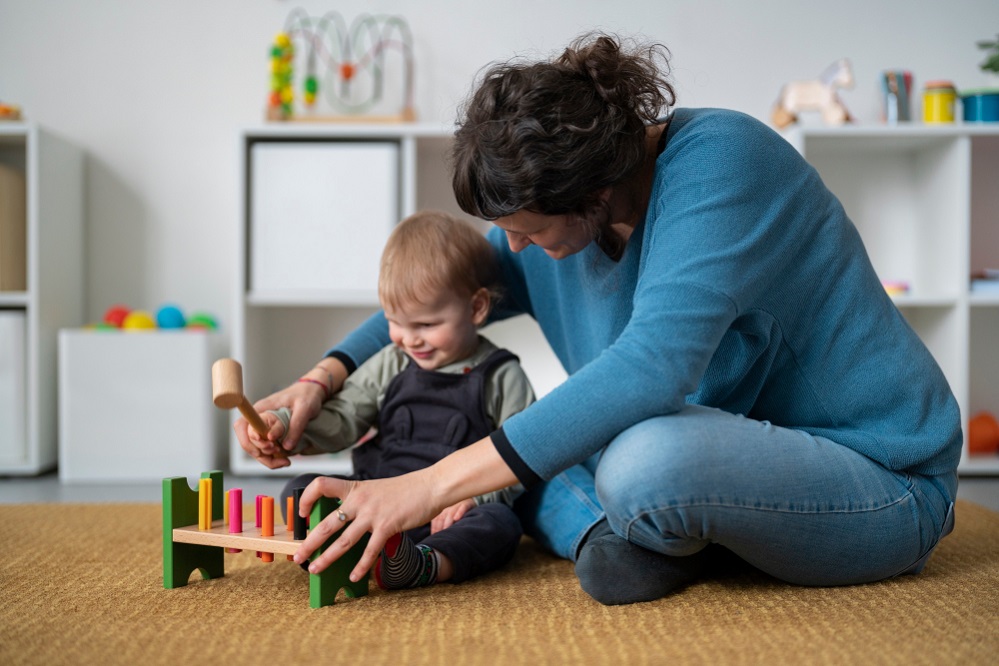Introduction
In the early stages of life, a baby’s brain is like a sponge, ready to absorb knowledge and experiences. As parents, we play a pivotal role in shaping our child’s intellectual and emotional development. Teaching a baby their first lessons at home can be a rewarding and bonding experience. In this comprehensive guide, we will explore effective methods and creative techniques to nurture your baby’s curiosity and intellect, laying a strong foundation for their future learning endeavors.
I. Understanding the Baby’s Developmental Stage
Before diving into the teaching methods, it is crucial to understand the developmental stage of your baby. Babies go through various stages of cognitive, motor, and social development, each with its unique milestones. Being aware of these stages will help you tailor your teaching approach to meet your baby’s specific needs and interests.
II. Creating a Stimulating Environment
- Sensory Play: Engage your baby’s senses by providing them with sensory toys and activities. Soft fabrics, textured objects, and musical toys can captivate their attention and enhance their sensory experiences.
- Visual Stimulation: Hang colorful and contrasting pictures or toys within your baby’s view. Babies are naturally attracted to high-contrast patterns, which can help in developing their visual acuity.
- Auditory Stimulation: Play soothing music or gentle sounds to create a calming atmosphere. Additionally, narrate stories or sing nursery rhymes to your baby, enhancing their auditory senses and language development.

III. Encouraging Cognitive Development
- Interactive Games: Simple games like peek-a-boo not only bring joy but also promote cognitive skills such as object permanence. Use toys or your hands to hide and reveal, stimulating your baby’s curiosity and memory.
- Reading Together: Reading age-appropriate books introduces babies to language and enhances their vocabulary. Choose books with vibrant illustrations and textures to keep your baby engaged.
- Counting and Sorting: Use everyday objects like blocks or fruits to introduce basic counting and sorting activities. This helps in developing early math skills and hand-eye coordination.
IV. Fostering Motor Skills
- Tummy Time: Encourage tummy time to strengthen your baby’s neck, shoulder, and arm muscles. This position is essential for developing motor skills and preparing them for crawling and eventually walking.
- Fine Motor Activities: Provide your baby with safe, easy-to-grasp toys that encourage hand-eye coordination. Activities like stacking blocks or playing with soft puzzles can enhance their fine motor skills.
- Encouraging Crawling: Create a safe space where your baby can practice crawling. Crawling is a crucial milestone that not only strengthens muscles but also improves spatial awareness and independence.
V. Cultivating Social and Emotional Development
- Responsive Parenting: Respond promptly to your baby’s cues, whether they’re hungry, tired, or seeking attention. This builds trust and a sense of security, laying the foundation for healthy social relationships.
- Playdates: Arrange playdates with other babies or toddlers. Social interactions at an early age help in developing empathy, sharing skills, and understanding emotions.
- Emotional Bonding: Spend quality time cuddling, singing, and talking to your baby. Emotional connections formed in infancy have a profound impact on a child’s self-esteem and overall emotional well-being.
Read Blog : Top 10 Safest and Most Comfortable Infant Car Seats 2023
VI. Patience, Love, and Consistency: The Key Ingredients
Teaching your baby first lessons at home requires patience, love, and consistency. Every baby is unique, and they learn at their own pace. Celebrate their achievements, no matter how small, and be supportive during their challenges. Your unwavering support and positive reinforcement will boost their confidence and enthusiasm for learning.
Conclusion
Teaching a baby their first lessons at home is a remarkable journey filled with discovery and joy. By understanding your baby’s developmental stage, creating a stimulating environment, fostering cognitive and motor skills, and cultivating social and emotional development, you can provide a solid foundation for their future learning adventures. Remember, your love, patience, and consistent efforts are the keys to unlocking your baby’s potential and shaping them into curious, confident, and compassionate individuals. Embrace this precious time with your little one, and watch as they thrive and flourish under your guidance and care.

